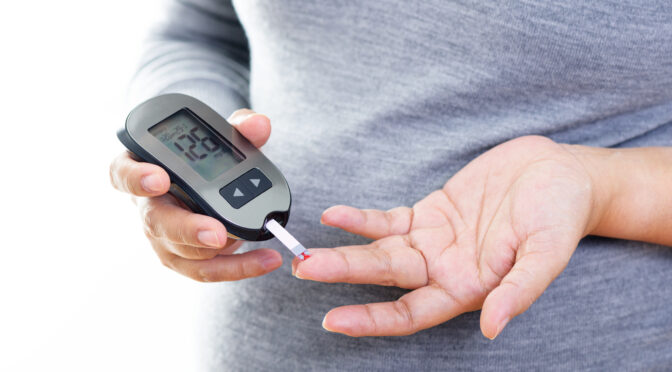
VETA Trial will evaluate the therapeutic effect of vitamins K2 and D3 paired with Empagliflozin on various diabetic and quality-of-life parameters.
MARCQ-EN-BAROEUL, FRANCE, AND EAST BRUNSWICK, NJ (8 Sept 2022) – A new study protocol1 has been published on ClinicalTrials.gov (NCT05417880) detailing a trial initiated by Gnosis by Lesaffre partner Scotmann Pharmaceuticals, Pakistan, who will execute a large-scale, multi-centered study to examine the impact of the combination of Empagliflozin, an oral anti-diabetic, with vitamins K2 and D3 on various diabetic parameters, including quality-of-life. Scotmann Pharmaceuticals, Pakistan uses Gnosis by Lesaffre’s vitamin K2 MK7 from natural fermentation, which has been validated in numerous clinical trials.
Globally, there were 437.9 million prevalent cases of Type 2 Diabetes in 2019, with an age-standarized point prevalence of 5,282.9 per 100,000 populations, which represents a 49% increase since 1990.2 The VETA Trial (Vitamin D, K2 plus Empagliflozin combination in Type Two Diabetes Mellitus) is a six-month prospective, randomized, controlled, open-label, multicenter trial conducted in collaboration with the University of Health Sciences Lahore (Pakistan) and the Pakistan Society of Internal Medicine. The study will enroll 340 participants, aged 40-60 years and having Type 2 Diabetes Mellitus (T2DM) for at least 10 years.
The participants will be allocated to either: the control group (continuing current oral anti-hyperglycemic other than SGLT2 inhibitors and no added D3 or K2 supplementation), the interventional groups receiving either 10mg Empagliflozin (a medication used together with diet and exercise to treat Type 2 diabetes; as VORETA tablets) or 10mg Empagliflozin plus the combination of 2,000 IUs of vitamin D3 and 100 mcg of Vitamin K2 as MK7 (as SunnyD PRO soft gel). The doses of both Empagliflozin tablets and the combination D3 + K2 soft gel will be taken once daily.
The main goals of the study are to:
- Explore the effects on hyperglycemic parameters (including HbA1c, FBS and RBS)
- Explore the effects on hyperlipidemic parameters (including HDL-C, LDL-C and Triglycerides)
- Assess the improvements in Diabetic Quality of Life parameters (DQol)
- Explore the effects on arterial calcification markers
“The idea is to follow the holistic approach guidelines for the management of T2DM,” says Dr. Syeda Saba Alsam, Head of Medical Affairs and Research with Scotmann Pharmaceuticals, Pakistan, noting that baseline screening of serum 25(OH)D3 levels would be done on all patients. “Since Vitamin D deficiency is highly prevalent in this cohort and a typical Pakistani diet lacks Vitamin K2, we are exploring the potential beneficial effects of these two micronutrients in Diabetic patients.”
“While treatment is crucial for diabetes, the proper nutrient intake is also important for this group of patients. Deficiency of vitamin D is globally recognized; however, the research suggests that vitamin D3 should be combined with vitamin K2 for synergistic impact. Further, it has been shown that vitamin K2 supplementation can effectively improve clinical features of diabetes,” says Sophie Legrain, Gnosis by Lesaffre Director of R&D, noting a study3 that showed vitamin K2 intake, specifically, produced a 7% reduction in T2DM risk with each 10mcg increment. “It is exciting to see our partner exploring the impact K2 and D3 could have for patients adding it to their therapy.”
References:
1https://clinicaltrials.gov/ct2/show/NCT05417880?term=vitamin+k2&draw=2
2 Safiri S et al. Prevalence, Deaths and Disabiity-Adjusted-Life-Years (DALYs) Due to Type 2 Diabetes and its Attributable Risk Factors in 204 Countries and Territories, 1990-2-19: Results from the Global Buden of Disease Study 2019. Front. Endocrinol., 25 Feb 2022. 13:838027.
3 Beulens JW, et al. Dietary phylloquinone and menaquinones intakes and risk of type 2 diabetes. Diabetes Care. 2010;33:1699–705.
About Scotmann Pharmaceuticals, Pakistan
Scotmann is a pharmaceutical centre of excellence with a diversified portfolio of branded generics in biotech, cardiovascular, diabetes, gastroenterology, respiratory, inflammatory diseases, pain management, osteoporosis, psychiatry, and OTC segments. The company’s R&D is structured around partnerships with European Contract Research Organizations (CROs). These partnerships help Scotmann adhere to excellent manufacturing practices, ensuring that its products meet the highest international standards for safety and efficacy.
About Gnosis by Lesaffre
Gnosis by Lesaffre harnesses the power of microorganisms and biotransformation processes like fermentation to cultivate nutritional actives, probiotics, and nutritional and functional yeasts that benefit human health and wellbeing. The team draws on its focused research and application capabilities to collaborate with nutraceutical and pharmaceutical brands to develop game-changing products for their customers.
For more information, please contact:
Kate Quackenbush, Communications Director, k.quackenbush@gnosis.lesaffre.com, +1 609-454-2992 x220
